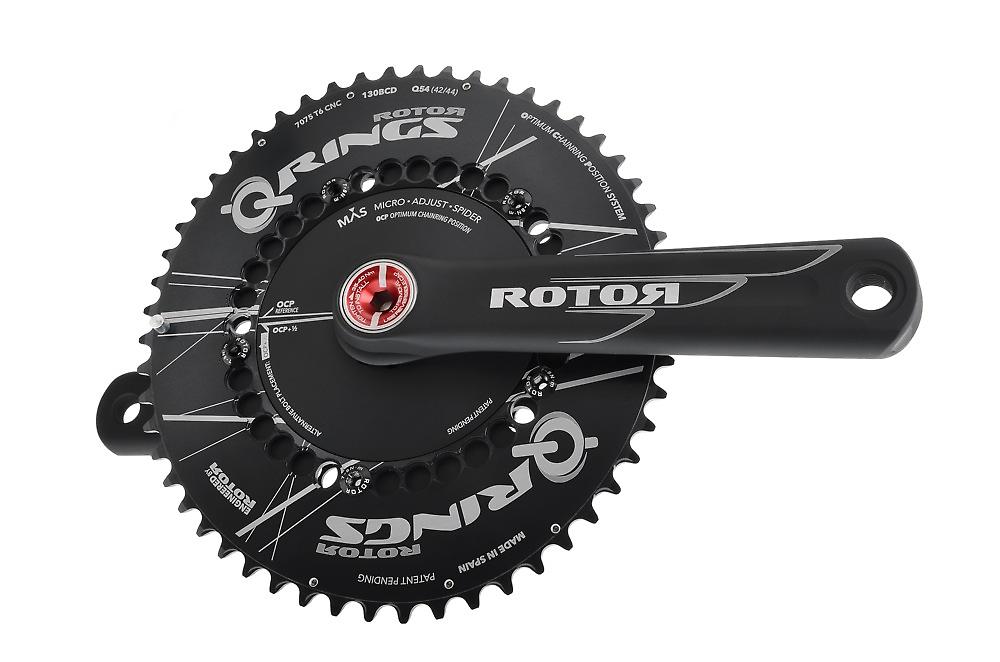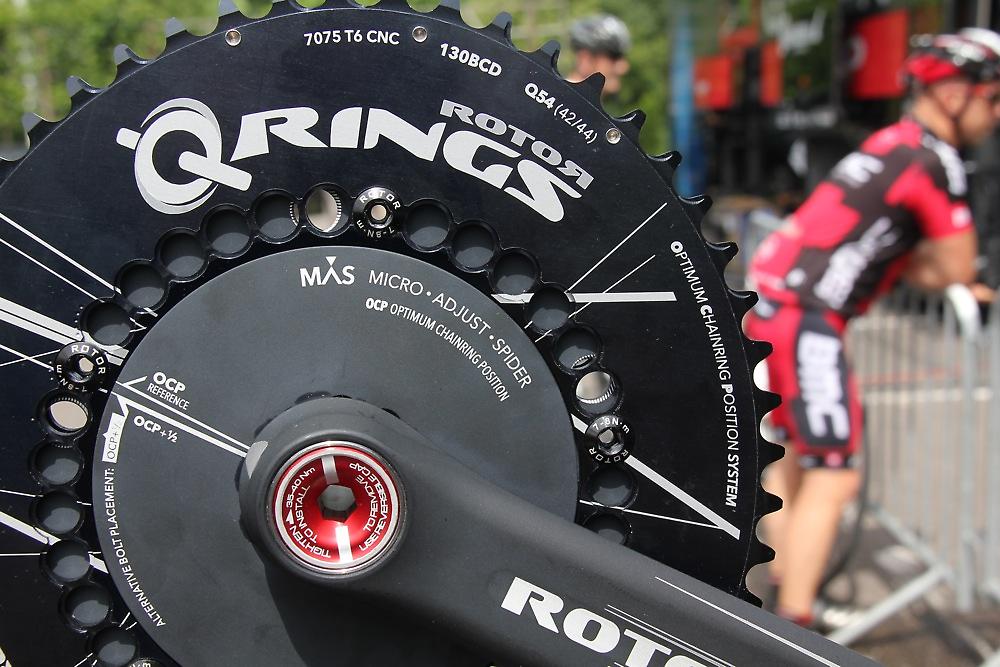- News
- Reviews
- Bikes
- Accessories
- Accessories - misc
- Computer mounts
- Bags
- Bar ends
- Bike bags & cases
- Bottle cages
- Bottles
- Cameras
- Car racks
- Child seats
- Computers
- Glasses
- GPS units
- Helmets
- Lights - front
- Lights - rear
- Lights - sets
- Locks
- Mirrors
- Mudguards
- Racks
- Pumps & CO2 inflators
- Puncture kits
- Reflectives
- Smart watches
- Stands and racks
- Trailers
- Clothing
- Components
- Bar tape & grips
- Bottom brackets
- Brake & gear cables
- Brake & STI levers
- Brake pads & spares
- Brakes
- Cassettes & freewheels
- Chains
- Chainsets & chainrings
- Derailleurs - front
- Derailleurs - rear
- Forks
- Gear levers & shifters
- Groupsets
- Handlebars & extensions
- Headsets
- Hubs
- Inner tubes
- Pedals
- Quick releases & skewers
- Saddles
- Seatposts
- Stems
- Wheels
- Tyres
- Health, fitness and nutrition
- Tools and workshop
- Miscellaneous
- Cross country mountain bikes
- Tubeless valves
- Buyers Guides
- Features
- Forum
- Recommends
- Podcast
TECH NEWS
 Rotor rings
Rotor ringsRotor Q-Ring test programme launched
There’s been much buzz about non-circular chainrings for the past few years, and this week Spanish firm Rotor, who specialise in non-circular chainrings and cranks, have launched their Q-Ring Test demo programme. This allows you to fit the rings to your own bike so you can try them out before deciding if they’re right for you.
Rotor reckon the proof is in the ride and will be supplying UK dealers with special red anodised chainrings that can either be fitted to their own demo bikes, or to a customers bike. Which is a very good way of finding out if non-circular rings are for you, rather than taking an expensive punt on them.
Non-circular chainrings have been around for over a hundred years, but it was Shimano's ill-fated Biopace oval rings in the latet '80s that arguably did a lot of damage for the non-circular rings. That didn't deter Rotor launching their Q-Ring in 2005 though, and they've slowly been gaining traction, particuarly in hte pro peloton, over the years.
Non-circular chainrings are an interesting concept, and the theories behind them does sound convincing. Rotor have plenty of science to support their Rotor Rings in providing improved efficiency and power with the result increased speed. What the chainrings do is to vary the effective chainring size to help you push through the dead spot.

So at the top and bottom of the stroke a smaller effective chainring helps you push faster through this zone, and with a bigger effective chainring at the point where most power is produced in the pedalling stroke. If some of the studies are to be believed, there’s as much as 6% power increase which, were slender gains are hard to come by, is potentially significant.
That's the theory anyway. It's worth having a look at this study that Rotor released last year if you want to see some interesting data on the claimed benefits. In it, they claimed "subjects completed the time trial on average 1.6 seconds faster, increased average speed approximately 0.7 kph and increased average power approximately 26 watts."
Throw into the non-circular versus circular chainrings debate is to look at what the professionals ride, though you can bet they’re often encouraged to ride particular products. That said, there’s been some uptake of non-circular rings, quite a few riders have been riding Rotor Rings. Tyler Farrar and Ramunas Navardauskas, who won stage 11 of the Giro d'Italia, both use them.

More famously perhaps, Bradley Wiggins rode O'symetric (a French firm also specialising in non-circular rings) chainrings to Tour de France victory last year. They’re similar to Rotor’s rings. Interestingly, Wiggo has stopped riding those rings this season... Chris Froome however is still racing them this season.
So don't take Rotor's word for it, pop along to your local Rotor dealer and try a set of non-circular chainrings out. If you do, let us know how you get on. You can find your nearest dealer at hwww.rotoruk.co.uk/stock.html
David worked on the road.cc tech team from 2012-2020. Previously he was editor of Bikemagic.com and before that staff writer at RCUK. He's a seasoned cyclist of all disciplines, from road to mountain biking, touring to cyclo-cross, he only wishes he had time to ride them all. He's mildly competitive, though he'll never admit it, and is a frequent road racer but is too lazy to do really well. He currently resides in the Cotswolds, and you can now find him over on his own YouTube channel David Arthur - Just Ride Bikes.
Latest Comments
- McVittees 34 min 55 sec ago
I think the key point here is BC do a risk assessment of an event and say "there you go" and walk off. They need to provide solutions to enable...
- Gkam84 3 hours 5 min ago
I think that is why blind eyes have been turned in the UK, internationally aswell, with things like the Redhook crits, there were many licensed...
- Surreyrider 3 hours 23 min ago
You're going to be writing that a lot in the coming months and years, unfortunately for you.
- mdavidford 4 hours 14 min ago
Ahem - other esporters(?) might be rather surprised to hear that the UCI has taken over their events - I think that would be the Cycling Esports...
- Bungle_52 4 hours 23 min ago
I wonder how he got to the game?
- OldRidgeback 4 hours 25 min ago
You'd need some good wet weather gear for that ride too.
- OnYerBike 6 hours 49 min ago
It seems to me that the most likely explanation is that whoever provided that quote fails to grasp the difference between a "public right of way"...
- andystow 6 hours 55 min ago
That article is far too kind to Moses. I highly recommend reading The Death and Life of Great American Cities. Despite the title, it applies to...
Add new comment
7 comments
i used them for a season and did not find them to be any better or worse, i switched back to round rings simply because it was easier to set the gears up with round rings.
It would be great if other people who have used Q-rings published their views here, either positive or negative. I read carefully a number of the academic/scientific reports available online and they are not unambiguous (which is surprising as the ovalisation principle makes sense at intuitive leval). Even the study referred in the article above shows no advantage in submaximal efforts, only in short full-out bursts (simulated 1000m TT) was a difference found. Furthermore, the gains achieved in the first couple of weeks of Q-ring use began to be lost in the following weeks (see for example figs. 4 and 5) as if some muscles were starting to detrain from less use.
I have these on my tribike. When one-legged cycling on round rings on the home trainer, I found that when I'm in the aero position, I could not get my leg over at the top of the stroke. The Q-rings make a big difference to my power and fatigue when I'm in the aero bars. I wouldn't go back.
Don't have them on the road bike, but would like to try them.
I'm old enough to have used biopace. I went to round rings from there. Q-rings are a different shape, and they do seem to do what's claimed. Foo-foo dust that seems to work....
I switched to Rotor rings a couple of years ago, in part out of curiosity and in part due to the fact I could get them cheaper than replacement rings from Campag at that time. I wouldn't want to go back now.
From the very first ride I found the pedal action more natural feeling than standard rings- going back to round rings on another bike feels like a 'choppy' pedal action. I cannot state they add anything to performance, far too subjective to tell without a lab! I would urge anyone to try them on a free demo though.
I had Biopace on a mountain bike in the 80s. When I asked about them in the early 00s the bloke in the bike shop grinned politely and said the tech had fallen out of fashion.
Still, what goes around comes around, I suppose.
Last link is mistyped, should be http://www.rotoruk.co.uk/stock.html
My nearest is over 400 miles away....I really want to test these on the trike, they are supposed to be the best way to go climbing...
Is there a way to contact Rotor directly about these?